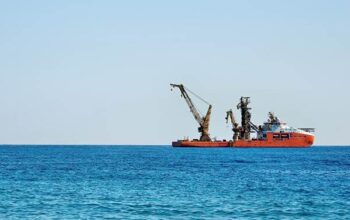
Yacht charter cost calculations involve multiple expense categories beyond base charter fees, including fuel costs, crew gratuities, provisioning expenses, and additional charges that significantly impact total charter investment requirements. Comprehensive budgeting prevents unexpected expenses while enabling accurate financial planning for luxury yacht experiences. Charter cost breakdowns available on dubriani.com provide transparent pricing structures that help guests understand all expense components before committing to charter agreements.
Base charter fee components
Weekly charter rates typically include vessel rental, basic crew salaries, and standard yacht amenities while excluding variable costs that depend upon guest usage patterns and destination requirements. Base fees vary dramatically between vessel types, charter seasons, and destination popularity, which affects market pricing structures. Peak season premiums can increase base charter rates by 20-50% compared to shoulder season pricing, making timing selection crucial for budget optimisation. Holiday periods and special events create additional premium pricing that charter guests should factor into overall cost calculations.
Fuel and operational costs
Fuel consumption varies significantly based on yacht size, engine efficiency, and cruising patterns that affect total operational expenses during charter periods. Fuel costs represent major expenses ranging between $500 and $5000 daily, depending on yacht specifications and usage patterns. Generator usage for air conditioning, lighting, and electronic systems creates additional fuel consumption, increasing operational costs during yacht charters. Anchor versus marina usage affects fuel consumption patterns as marinas eliminate generator requirements while providing shore power connections.
Crew gratuity expectations
Industry standards suggest crew gratuities between 10-20% of base charter fees distributed among crew members based upon individual contributions to guest experiences. Gratuity calculations should consider crew size, length of charter, and quality throughout charter periods. Captain gratuities represent larger portions of total crew tips due to leadership responsibilities and overall charter management duties. Individual crew member contributions, including chef quality, deck hand assistance, and stewardess attention, affect appropriate gratuity distribution among team members.
Provisioning and catering expenses
Food and beverage costs depend heavily upon guest preferences, dietary requirements, and meal complexity, affecting overall provisioning expenses during charter periods. Premium ingredients, speciality nutritional accommodations, and extensive wine collections increase provisioning costs substantially.
- Fresh seafood procurement adds $50-200 daily, depending on guest preferences
- Premium wine selections ranging between $500 and $3000 for comprehensive charter periods
- Speciality dietary provisions, including organic, kosher, or allergy-free ingredients
- Local market purchases featuring regional specialities and cultural cuisine ingredients
- Premium beverage selections, including craft spirits and artisanal cocktail ingredients
Advance provisioning coordination enables better cost control while ensuring ingredient availability and quality throughout charter periods. Local market shopping provides cultural experiences while potentially reducing provisioning costs compared to advance purchasing.
Harbour and regulatory fees
Marina fees vary dramatically between destinations, with premium locations commanding higher dockage rates during peak charter seasons. Overnight marina stays provide convenience while creating additional expenses that affect total charter costs. Customs and immigration fees apply for international charter destinations requiring official clearance procedures and documentation processing. These regulatory expenses vary between countries and charter durations while ensuring legal compliance during international voyages.
National park fees, diving permits, and fishing licenses create additional regulatory expenses for charter activities that require official permits and environmental compliance in protected areas or regulated waters. Comprehensive budgeting ensures financial preparedness while preventing unexpected costs that could compromise charter experiences or create financial stress during luxury yacht adventures.



